
This article is more than
3 year oldRussia has been setting the stage for an invasion of northern Ukraine from neighbouring country Belarus since at least October, in what has been described as a “worst case scenario” for the war.
Documents from the Institute for the Study of War (ISW) said analysis showed Russia had been preparing for a potential invasion in the north for months.
Russian President Vladimir Putin was due to meet with Belarusian President Alexander Lukashenko, as Russia builds up its military operations in Belarus – a country which has long been viewed as a willing participant in Mr Putin’s war machine.
The ‘worst case scenario’
According to the ISW, Russia had been getting ready for a potential invasion of Ukraine’s north since at least October.
“Moscow has been setting conditions for a new most dangerous course of action — a renewed invasion of northern Ukraine possibly aimed at Kyiv — since at least October 2022,” the ISW warned.
Russia has been building up forces in Belarus, which the ISW said made more sense as part of preparations for a renewed offensive than as part of ongoing exercises and training practices.
Prominent Russian pro-war military blogger Igor Girkin, who was once a Russian military commander and was last month found guilty for the murder of 298 people after Malaysia Airlines Flight 17 was shot down, amplified the possibility of the invasion, the ISW found.
Stream your news live & on demand with Flash. From CNN International, Al Jazeera, Sky News, BBC World, CNBC & more. New to Flash? Try 1 month free. Offer available for a limited time only >
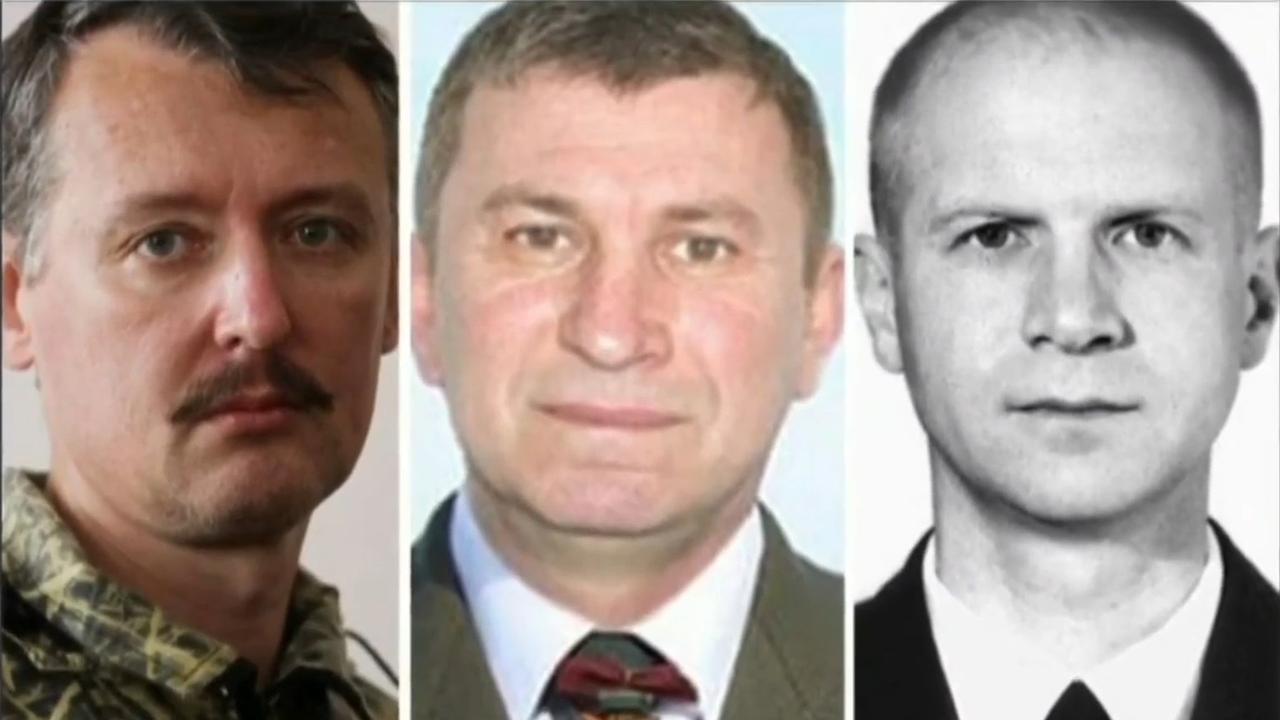
Girkin broke the possibility into two potential courses of action: Either Russia could invade from Belarus in an effort to capture territory, or it could do so in a diversionary operation to draw Ukrainian forces away from other parts of their embattled country.
The reasons for Russia’s arms build-up in Belarus remained “ambivalent”, the ISW said.
Verified evidence of the build-up “made more sense” as part of preparations for a renewed offensive in the north, but there remained no evidence that Moscow was actively preparing a strike force in the country, it found.
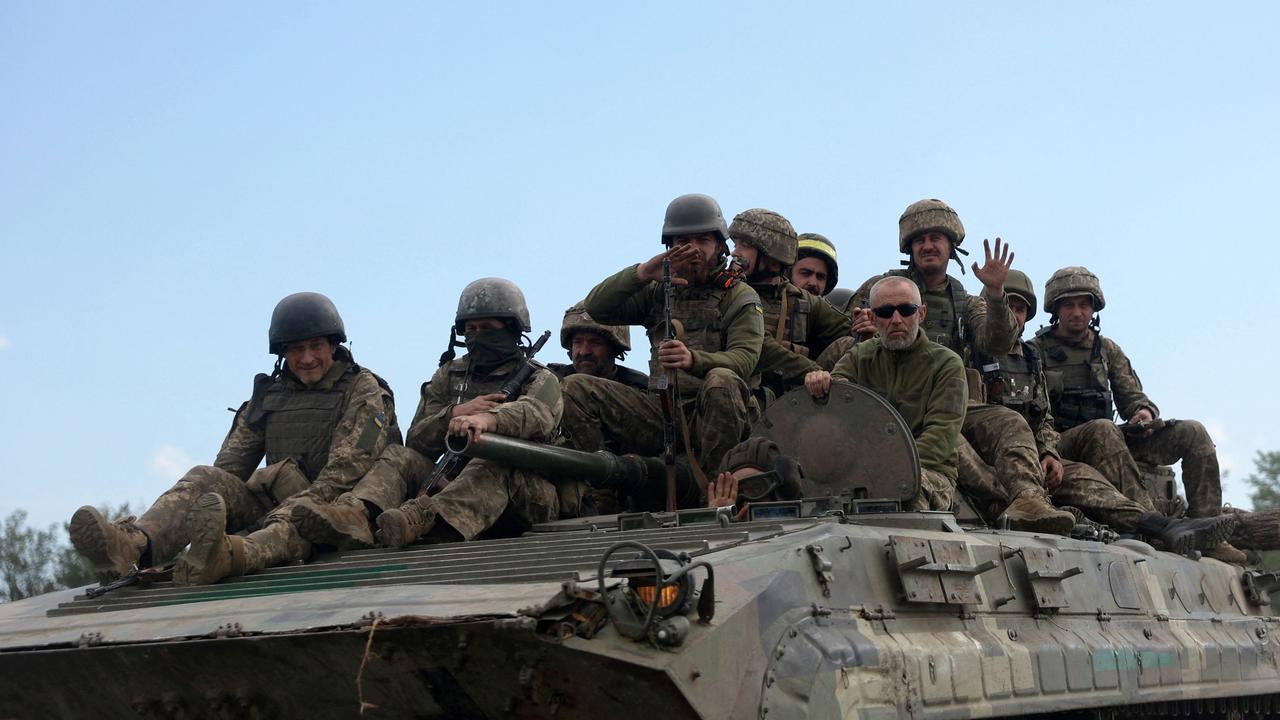
A new offensive in the northwest
Meanwhile, the Russian military had “much more clearly” been setting the stage for a new offensive in northwestern Luhansk Oblast, the ISW found.
The Ukrainian General Staff reported an increased volume of trains carrying personnel, military equipment and ammunition to combat areas just before Christmas.
Geo-located footage also showed a train loaded with Russian tanks heading towards Luhansk Oblast, and the ISW had previously observed Russian forces transferring elite airborne troops away from Kherson and Kharkiv and towards the region.
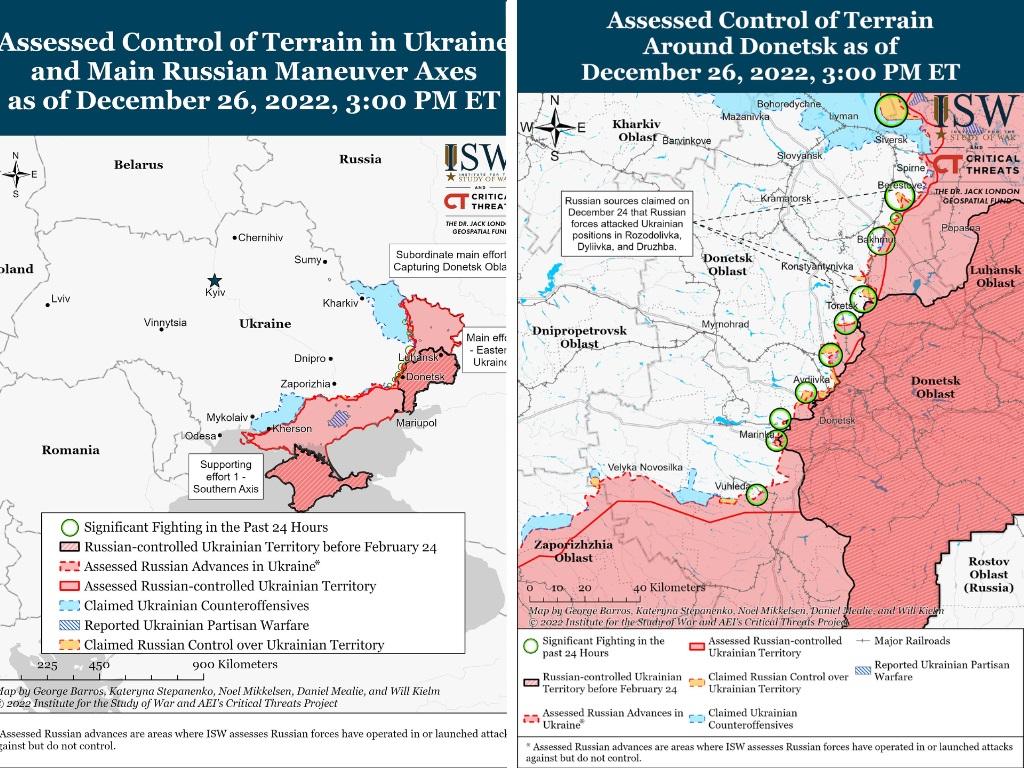
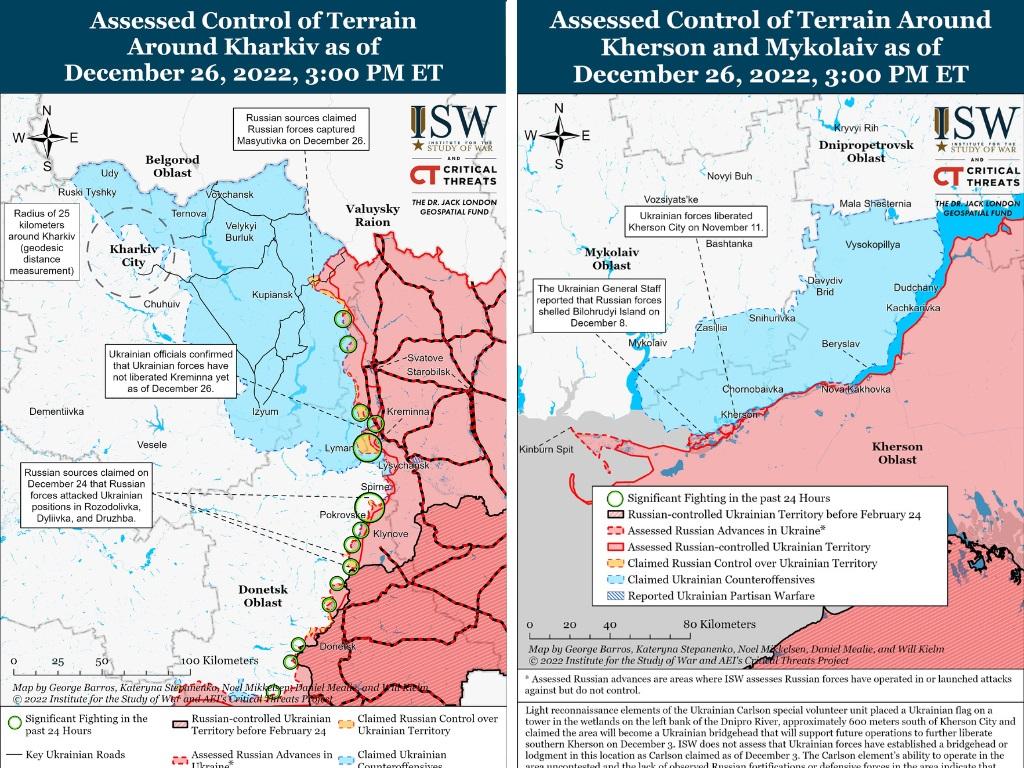
Putin’s popularity contest
Russian President Vladimir Putin has in recent weeks put in a slew of public appearances, in a potential bid to win back the Russian people after embarrassing failures in Ukraine.
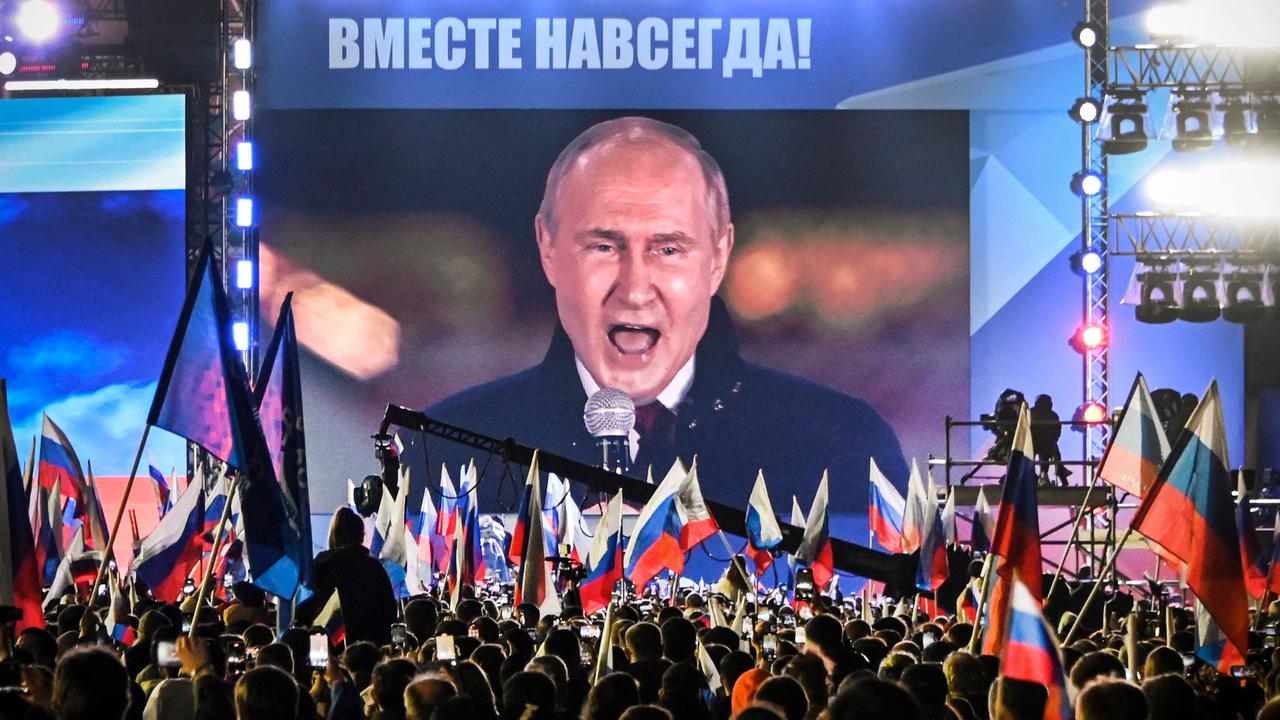
Mr Putin has been seen making more public appearances in Russian cities, delivering vague statements about Russia’s invasion of Ukraine – a dramatic pivot from his notable absence from public life in the first 10 months of the war.
He visited an arms manufacturing facility in Tula Oblast in the lead-up to Christmas, and reportedly also planned to visit the Uralvagonzavod machine-building factory but cancelled the event at the last minute.
Mr Putin has suffered serious blows in the court of public opinion since invading Ukraine in February, as he asked soldiers to fleece their own first aid kits and conscripted the elderly into his floundering war effort.
He has blasted the West for trying to “tear apart” Russia, saying in an interview aired on national television that his invasion in Ukraine aimed to “unite the Russian people”.
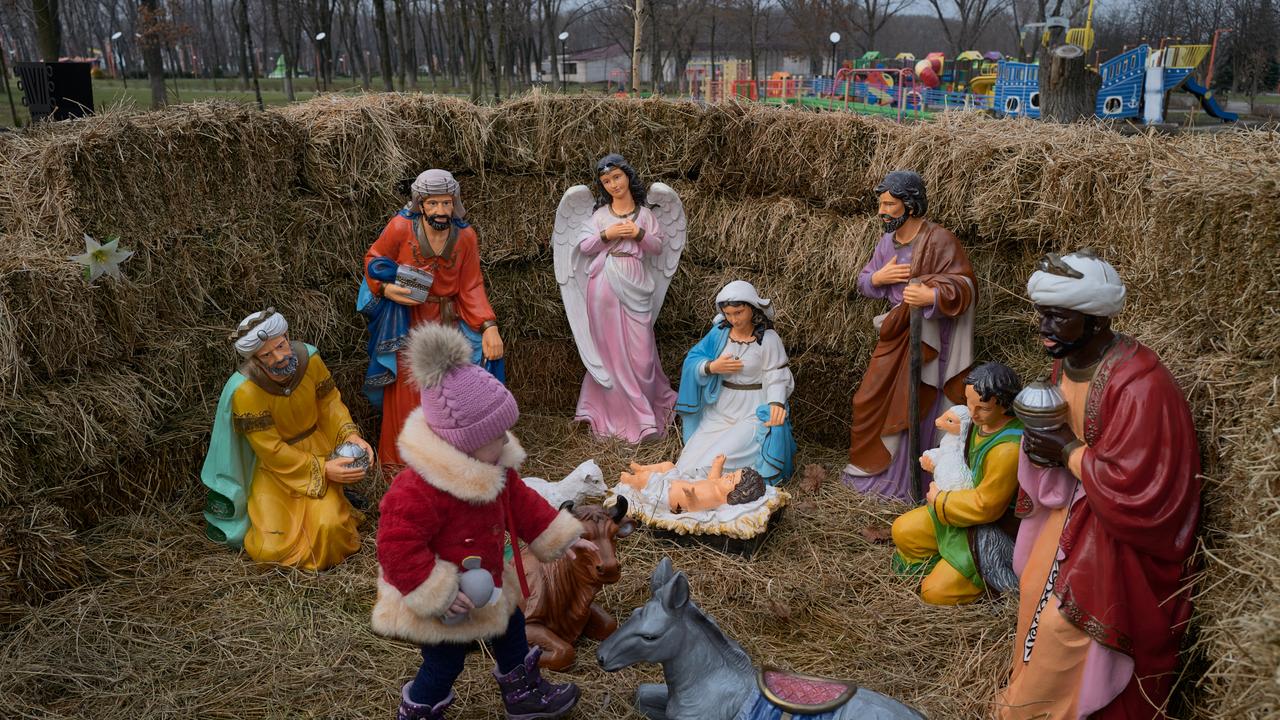
“Divide and conquer, that’s what they have always sought to accomplish and are still seeking to do,” he said.
“But our goal is different: It’s to unite the Russian people,” he said.
A defiant Ukraine celebrates Christmas
Meanwhile in Kyiv, a day after deadly shelling in southern Ukraine, residents held Christmas services on Sunday, defying the Russian Orthodox Church’s spiritual leaders who celebrate it on January 7.
While the Ukraine Orthodox Church usually celebrates Christmas on January 7 like Russia, this year church leaders gave their blessing to people celebrating on December 25, in order to defy the Russian invaders.
On Sunday, church bells pealed throughout Kyiv as people attended Christmas services.
At a service in central Kyiv, worshipper Olga Stanko told AFP she supported any move that would distance Ukraine from Russia.
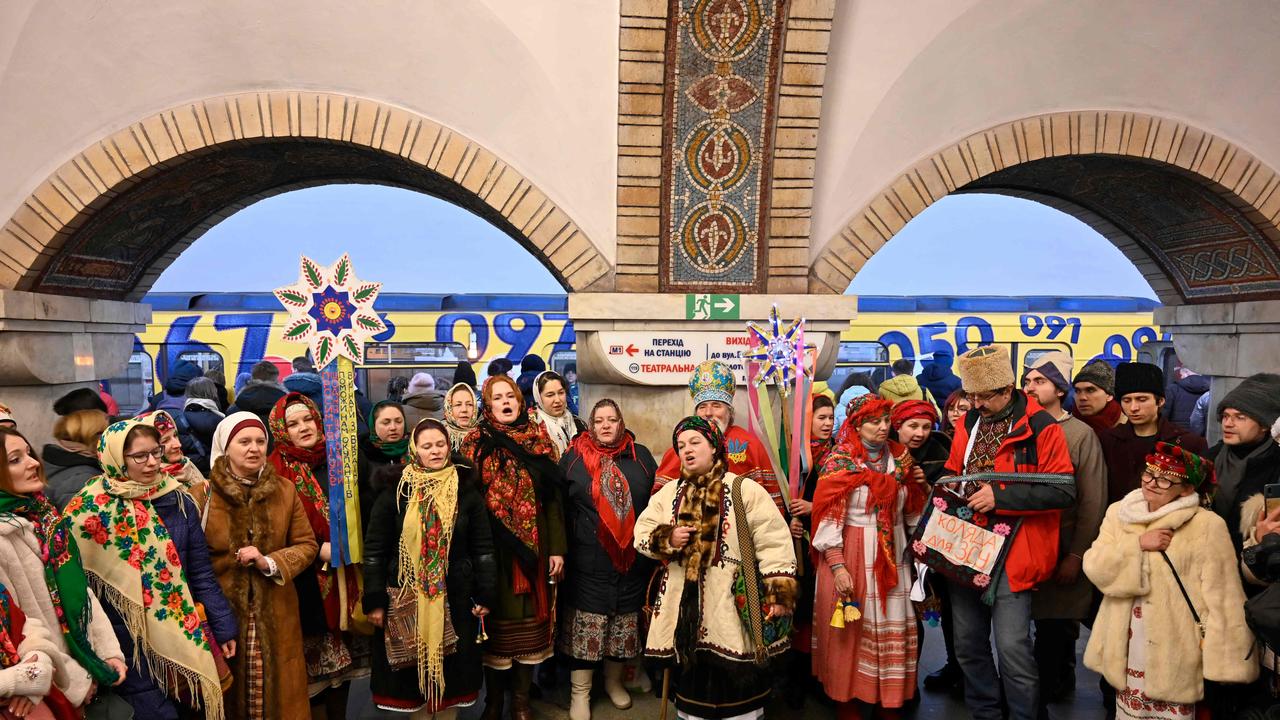
“The war has brought us so much grief,” she said. “We cannot do this with Russia, remain under its influence.”
Also attending the service, Olena Zakharova-Gorianska said she was happy to be celebrating Christmas on December 25 for the first time – describing it as an obvious choice after surviving Russian occupation in the town of Gostomel, north of Kyiv.
“I do not want to have anything to do with the occupiers, with the enemy,” she said.
Zelensky prepares a peace plan
Ukrainian President Volodymyr Zelensky is reportedly preparing to present a peace plan in February 2023, which could be timed to exploit Russia’s potential invasion from Belarus, the ISW found.
Mr Zelensky previously outlined a 10-point peace plan at November’s G20 summit, which called on Russia to withdraw all of its troops, and respect Ukraine’s sovereignty and territorial integrity.
He may be planning to present this peace plan in February, in the hopes the Russian winter offensive would fail.